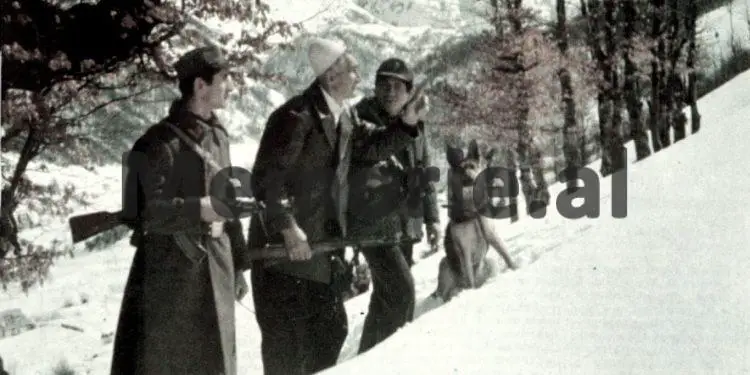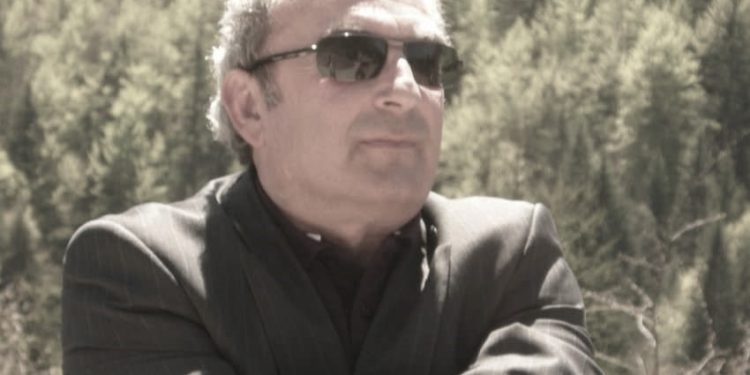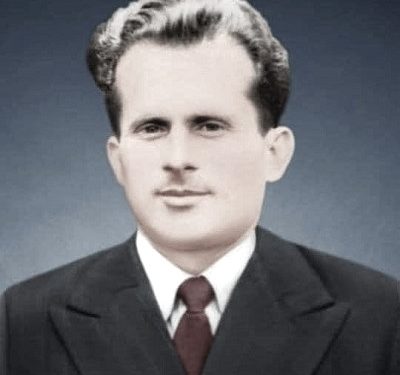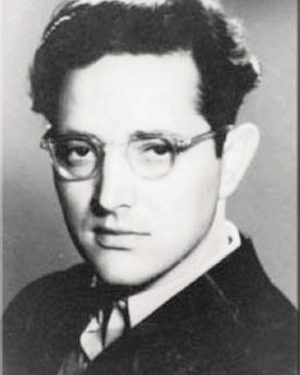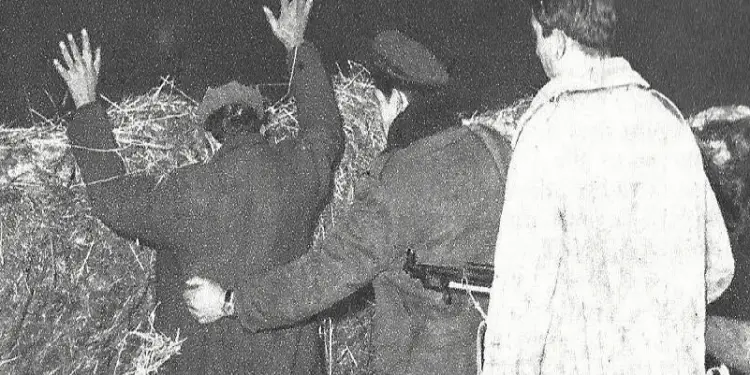By Ndue Dedaj
Memorie.al / There are some people, well-known in their areas, who deserve wider public recognition, even for an unusual event in their lives, which they themselves have created, often risking their lives, for the sake of love. Mark Ukshin Deda, from Berisha e Puka, has suffered seven years in the Spaçi e Ballsh prison, but this is not the event of his life, since hundreds and thousands of others have had similar stories of political salvation during the dictatorship. Marku, a great patriot, a supporter of freedom of conscience, was first and foremost a hero of love and family. Yes, yes, a true hero of love in the mountains of Kanun! His entire life is an event to be noted and honored.
He weaves like no other the novel of his life, which we learned through the pages of the book “The Ordeal of a Martyr”, by authors Ndrecë Mustafa and Gjergj Ndou, written on the basis of their research, the memories of Vitore, Mark’s wife, and many others who knew him, a protagonist who, as much as he is himself as an individual, is also the type of highlander imbued with the highest qualities of the Albanian race, which he, as a rhapsod of the region, sang with couple.
Mark Ukshini, born in 1923 in the village of the Church, had grown up in a region where the history of resistance and glory had been like daily bread. There was the Oak of Lekës (Dukagjini), the Red Suka, which would later be called “Kodra e Flamurit”, the ruins of the church of Shëlbuemi, where Saint Mary was celebrated and in neighboring Iballe, Shmasjani (Saint Sebastian), etc. Since childhood, he had listened with adoration to the song of Ndoc Mark Deda, a warrior of his Dedaj tribe, about whom newspapers had written in Istanbul, because he had directly confronted the Pasha, turning back his army.
Mark was a descendant of this brave “chartun” and other martyrs of the homeland, from this door to the voice. He received his first lessons in the village church from the priest, Father Gjoni, who, as in many highland villages, where the priest also worked as a teacher. His talent as a future artist began to appear, but was hindered. He wove verses and melodies, sang here and there along the Drin.
At that time, the Koman hydroelectric power plant had not yet been built and there was no lake to prevent him from going to Toplana and the other villages of Dukagjini opposite. Two or three mountains further on, in Temal, his peer Martin Camaj spent his youth – the boys from the Drin side, were always distinguished for their songs, but in this case, one would become a renowned poet of the nation, because he went to the West, and the other a rhapsodist, who could not get his voice beyond his Berisha in his homeland.
Marku joins the National Liberation War and after its end, he is appointed post commander in Koplik, to then serve as an active military officer (with pay) in Shkodra and Gjirokastra. When he was in the southern city, he is accused of having known about the escape of several soldiers to Greece, but after the investigation, he is acquitted as innocent. Not that he couldn’t escape himself, but he loved his country, above all else.
He returned to his hometown, in Belshina, Berisha, and got engaged to Vitora, a girl from the well-known Mirakaj family of Iballa. But her father, Zef Nikollë Miraka, after his internment, not feeling safe with the communist government, fled with his entire family to Yugoslavia in 1955.
After the death of his wife at a young age, he had obtained the approval of Marku’s family, that the wedding would take place after a year, but circumstances had accelerated his escape, an hour earlier, on a moonless night, taking his entire family with him, including his fiancée, who was also the eldest child. He had not disowned his groom, but he believed that communism would not last long and that his family would return to Iballa, to continue their lives, work, and friendships.
Then those who escaped from here were taken to an emigrant camp in Podujeva. The border had broken between so much loves, that it would never bloom again. In ’48, when we broke up with Tito, it happened that the wife remained in Albania and the husband in Kosovo, and then in America, to meet again only after ’90, when they were old.
And Mark Ukshini, would take on the unprecedented challenge, just like Shakespearean characters, he would ignore time, borders, countries, prisons here and there, to go to his fiancée, even though he had not known her closely. His heart had felt that that girl was his destiny. There was no other impetus in that “adventure”, except love. As never before, family drama was intertwined with political and national drama.
The new “democratic” regime that was established in Albania in 1944 was not the same for all the inhabitants, some had their own and some had enemies. The class struggle already separated the “bad” from the “good”…! And Mark Ukshini made his life’s decision, went to Yugoslavia, found his fiancée and took her as his wife, as was customary. It was not a verbal word, but a rare sacrifice that he undertook without flinching.
He managed to cross the border without falling into the ambush of the border guards, left Drin here and found her again there. In Gjakova, he surrendered to the police and made his way to Podujeva, to stay three months in the investigation. How could the Serbian investigators believe that this man had done that “marathon” for his fiancée? Didn’t he understand that these were not times for love games of the “Romeo and Juliet” type, but were accused of treason on the one hand and espionage on the other!?
He is released from detention and calls into the courtyard of his friend’s house, humorously telling Zef Miraka, as he got up to open the door, that there was someone who had his eye on him as a friend, if he had a girl for him? “Yes”, came the answer from inside, “I only have the older daughter engaged, and I can’t give her away”! “I love the older one…”, insists the friend, who was waiting for the door to open.
The owner of the house is as surprised as he is happy when he sees Marku and together they make plans for the wedding, which will take place in February 1956, in the local church. While they continued their lives in Kosovo, one day Mark told his bride that he had good news, their request to go to Belgium as political emigrants had been approved, where there were many other Albanians who had had the same fate.
The West was open to those who disliked and opposed the communist regime in the East. Vitorja agreed to go to Europe, even though she had her parental family in Podujevo. Although a quiet and undisturbed life awaited them in Brussels, it seems that Mark had had a strong struggle within himself, which one to choose: his Albania, or the free world?
And he had won his homeland, although a hopeless political jungle. His wife would not spoil it for anything for the man who had overcome nine mountains, as in the legends about him. His proof of love had been on the verge of the unbelievable. And they had undertaken the return journey to Berisha, where they had arrived a week later. They are kept in the Shkodra prison for several months and then released, returning to Belshina, to the lands of Ukshin Pjetër Deda, and they start a life, where they have six children, three boys and three girls. Marku, from time to time, takes the çifteli and sings the songs of bravery of those parts, as the famous rhapsodist of Kabashi, Prendush Gega, had once done.
In Berishe, Mërtur, Dushman, etc., people also listened to his song, which he had dedicated to himself, convinced that his story was unique, how he had gone to Yugoslavia, found his runaway bride with her whole family and how he had then come here with her whole bride, but without a husband.
A passionate rhapsody for the Party of Enver Hoxha, for the victories of socialism, would perhaps have been salvation, rehabilitation, and perhaps even a “sheet of honor”, but this did not correspond to the morality of a man of a noble lineage, who had always risen above the provincial and political clans. Berisha’s new rhapsody did not belong to socialist realism, and although he had been included in the early 1960s, in the folklore group of the area, he was quickly removed due to his biography.
He had remained an authentic Albanian of the race, a continuer of the traditions of his ancestors, to whom communism had not attached itself at all. He was an idealist; he always saw the good, the positive, but he did not make any concessions to the ideology of the time. He had the “golden” opportunity to escape a dangerous marriage that would follow him as a curse for the rest of his life, but this did not happen to a man of the earth like Mark Ukshini, who had a name and a prominent personality.
On the contrary, that marriage was a blessing for him, as his soul would be filled to the brim. Mark Ukshini had left Western civilization, Belgium for tradition, patriotism, family, and all this for this immaculate Albanian, who had been rewarded with “Spaçi”, seven years of political prison, since for Mark the homeland had no price.
He had opposed joining the cooperative, he had not agreed with the demolition of churches in 1967, which had come by formulating step by step, the accusation against him. Or was he not Mirakajsh’s son-in-law? In 1969, he was convicted of agitation and propaganda and released in 1976. He served his sentence and returned to life, but one day in 1985, while he was taking care of the cooperative’s cattle, he was suddenly swept away by the whirlpool of the Drin, the river that had loved him above all else and had woven dreams along its banks.
The political paradox cannot fail to appear here, despite the family tragedy, the Party secretary addresses Vitora, saying that if her husband’s body is not found within five days, then we will declare that he has fled to Yugoslavia!? And she replies: “He did not stay there when he was without family and children, he would not escape now”! On the sixth day, his body was found on the river bank, a few kilometers downstream…!
This is how the monographic book conveys the figure of Mark Ukshin, which the authors have written with the support of his family, especially his son, Prelë Deda, one of the founders of the Democratic Party in Puka and its leader, who has been living with his family in America for years, as well as his two brothers. There is also Vitorja, the living bearer of this noble story, who came to Tirana some time ago to promote the book dedicated to her husband. America, which once instilled fear, and when mentioned as a name, the day came and became the new mother of the family of Mark Ukshin’s descendants.
Vitorja recalls an incident with “America”, from the early 1970s, when the Party secretary gathered the people and, to seriously provoke them, addressed them with the question: “What is happening in America today? Vitorja, accustomed to such critical situations, answers the “comrade” of the Party, how could she know in the village, what was happening in America? But the “red commissar”, dropped the bomb: “How did you not know, you have two brothers in America”? No matter how pressured, the people gathered there, did not applaud the public unmasking that the Party secretary tried to do to the defenseless wife of the Ukshins and Mirakajs.
Contemporaries remember that even for Mark at that time, the Sigurimi had invented the “legend” that he listened to American radio…! Finally, today you can hear many state leaders in Albania, swearing and beating their chests for the Fatherland, but a work like Mark Ukshin Deda’s, speaks more than anything. Therefore, this story is worth adapting and putting in school textbooks, for its timeless educational values. Memorie.al




